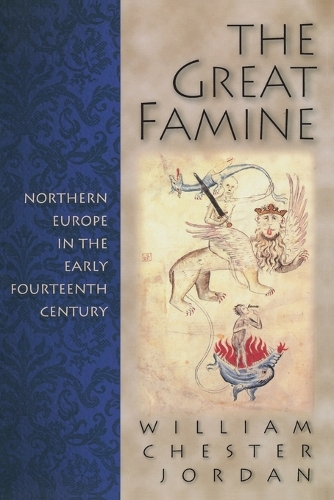
The Great Famine: Northern Europe in the Early Fourteenth Century
(Paperback)
Publishing Details
The Great Famine: Northern Europe in the Early Fourteenth Century
By (Author) William Chester Jordan
Princeton University Press
Princeton University Press
17th March 1998
United States
Classifications
Professional and Scholarly
Non Fiction
European history: medieval period, middle ages
Social and cultural history
940.192
Runner-up for Choice Magazine Outstanding Reference/Academic Book Award 1996
Physical Properties
Paperback
328
Width 152mm, Height 235mm
482g
Description
The horrors of the Great Famine (1315-1322), one of the severest catastrophes ever to strike northern Europe, lived on for centuries in the minds of Europeans who recalled tales of widespread hunger, class warfare, epidemic disease, frighteningly high mortality, and unspeakable crimes. This work offers a perspective of what daily life was actually like throughout the entire region devastated by this crisis and also looks at its causes. It is a comprehensive enquiry into the Famine from Ireland to West Poland, from Scandinavia to central France and western Germany. The author produces a cultural history of medieval community life, drawing his evidence from such sources as metereological and agricultural records, accounts kept by monastaries providing for the needy, and documentation of military campaigns.
Reviews
Winner of the 2000 Haskins Medal, Medieval Academy of America One of Choice's Outstanding Academic Titles for 1996 "In this important new synthesis of the causes, course, and consequences of the Great Famine, Jordan offers a corrective to the view that after its initial crippling effects, famine continued to afflict Europe until the ultimate devastation of the Black Death... A richly detailed cultural history that considers significant regional variations and stresses the event's human dimension, including its manifold and different effects in rural and urban contexts and on people of differing age, status, and power... This will become the standard work on the subject."--Choice "Ever since the publication of Barbara Tuchman's A Distant Mirror, many readers have had a sneaking suspicion that the 14th century is uncannily similar to our own. Anyone who takes up this book in hopes of finding a new Tuchman will find something better, though: a work of great depth written in a scholarly though engaging way... [T]he impressive scholarship ... deserves to be appreciated for its own merits. Among the many virtues of this readable work are the corrections of many common misperceptions of the Middle Ages and a bibliography that is extensive and impressive... "--Publishers Weekly "A richly detailed cultural history... This will become the standard work on the subject."--Choice "Anyone who takes up this book in hopes of finding a new Tuchman will find something better, though: a work of great depth written in a scholarly though engaging way."--Publishers Weekly
Author Bio
William Chester Jordan is Professor of History and Director of the Shelby Cullom Davis Center for Historical Studies at Princeton University. Among his books are Louis IX and the Challenge of the Crusade: A Study in Rulership (Princeton), Women and Credit in Pre-Industrial and Develpoing Societies, and The French Monarchy and the Jews from Philip Augustus to the Last Capetians. He is the editor-in-chief of The Middle Ages: An Encyclopedia for Students.
